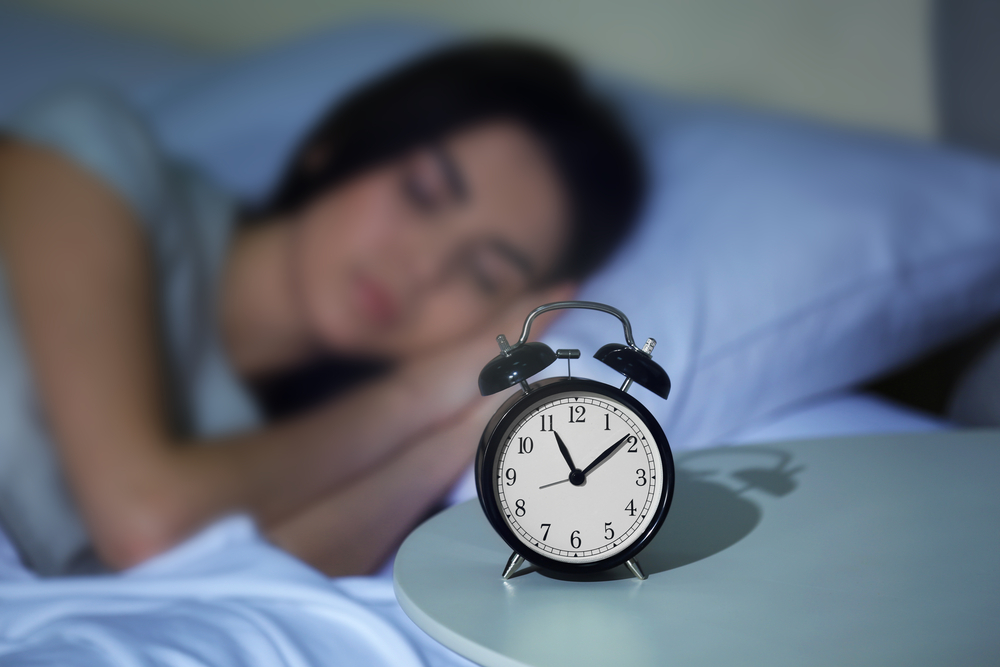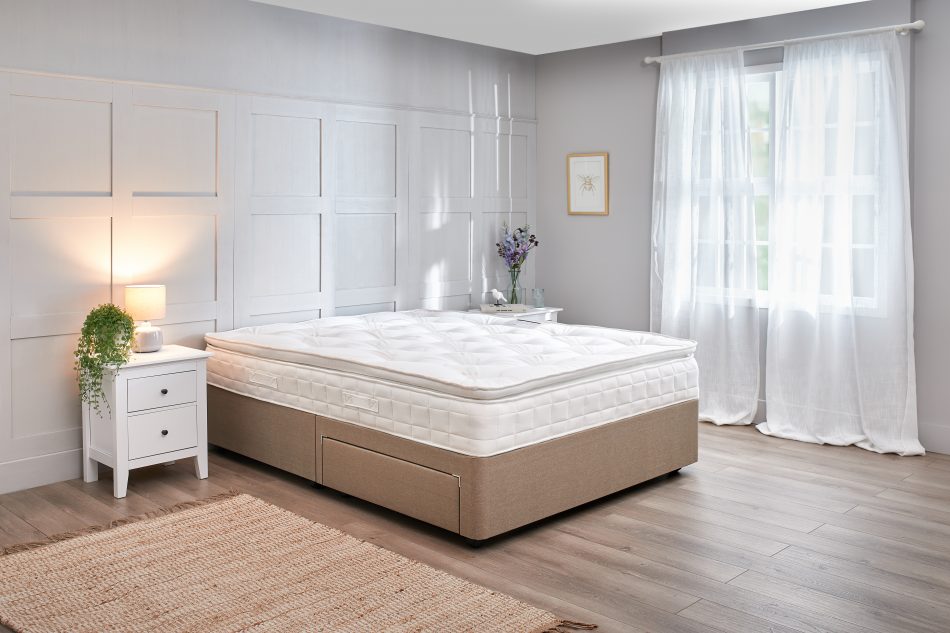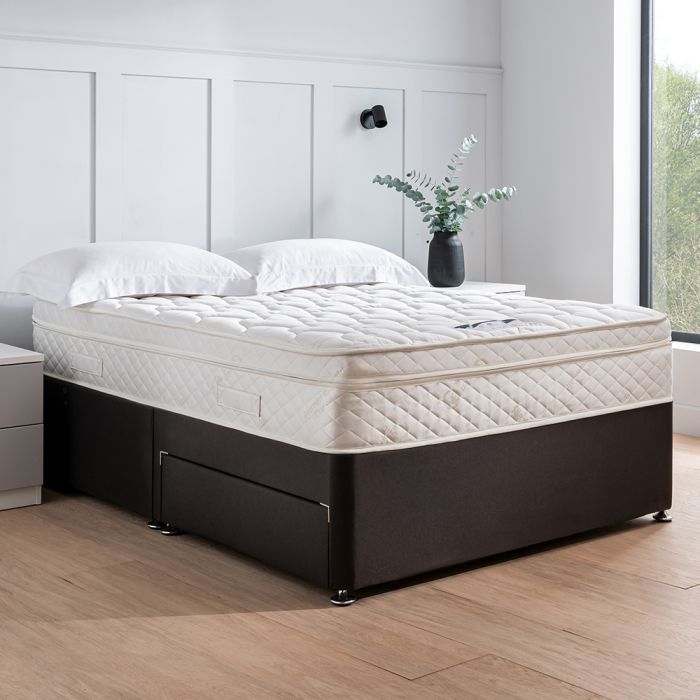What’s the Difference Between Napping and Sleeping

Be honest – who doesn’t love a good power nap? Whether you’re a daytime snoozer or prefer to save bed-time for the evening, it’s important to consider if your sleep routine is due to an MOT. For example, do you feel like you need to nap every day, and do you feel like you’re not getting enough sleep overall? You may be surprised to learn that a little lunchtime nap could be affecting your sleep health.
Here, we’ll explore the difference between a daytime nap and sleep, help you understand what your sleep habits mean, and share our expert tips for optimising your sleep environment.
By the end of this article, you’ll know how healthy your sleep styles are and if your nap is, in fact, a full-on sleeping session.
What Is the Definition of Sleep vs Having a Nap?
It’s vital to understand what both terms mean when comparing napping and sleeping. This not only helps you understand what form of rest you’re enjoying but also how you can make improvements to start sleeping better. A nap is usually a short rest lasting up to an hour. During this time, your sleep will be lighter than an evening rest. Rest, classed as sleep, involves a full cycle of brain phases with the purpose of essentially resetting after a period of physical and mental exertion. The four stages of sleep are:
Stage One – Light entry to deeper sleep, which lasts 10 minutes. This is often known as the drifting phase, like a short nap.
Stage Two – This is the next 30 minutes of sleep, in which the body starts to relax and power down slightly. Sleep is still light.
Stage Three – This is the first stage of restorative rest and the point in which a nap turns into sleep. This can last up to an hour and is a deeper form of rest – it’s usually harder to wake someone up from this phase!
Step Four – REM sleep marks the ultimate difference between napping and sleeping, as this phase allows for complete muscle relaxation and dreaming. Without entering REM sleep, you’ll likely not feel rested, resulting in overtiredness.
If you’re in need of a midday boost, a nap can be a great way to gain more energy, but it can also hamper your ability to enjoy a deep sleep in the evening. This could lead to you only napping during sleep time, with only short periods of rest being experienced and the entire sleep cycle left uncompleted.
What Does Healthy Napping Consist Of?

Sometimes, a nap is a positive way to regain energy when your battery is running low. If you’re a new parent, have tricky work shifts or a busy schedule, you’re probably a frequent napper. Just remember to keep your naps short and sweet so that nighttime sleep is not impacted.
A nap should be around 30 minutes, or an hour on those days when you’re particularly tired. You should avoid napping where you would normally sleep, as the relationship between the two different forms of rest can become blurred, leading to unhealthy habits. The time that you nap is also important, as it should be no more than eight hours before evening sleep. Napping too late can lead to routine breaks, which again impacts the ability to get quality rest at bedtime.
It’s a good idea to also consider setting an alarm, reducing the chance of interruptions, being mindful of why you need a nap and not relying on napping as a constant activity.
Can Improving Sleep Reduce the Need for Napping?
Yes, it can! One of our main expert tips for falling asleep quickly and deeply is to focus on quality sleep instead of relying on naps. Making changes to your daily routines and sleep environment are essential methods of doing this.
This may not eliminate the need for a nap, but it should reduce the frequency that you rely on them!
How Can You Ensure That All Sleep Is of High Quality?
The benefits of high-quality sleep are game changing, with improved concentration and better physical health being just two perks. If you’ve ever felt frustrated by your lack of sleep, we’re here to help! By following these tips, enjoying deep, REM sleep should be a breeze.
Choose a Quality Bed and Bedding Accessories
A great way to sleep deeply is to recreate the Premier Inn bedding experience at home. There’s a lot that goes into sleeping well, but improving your sleep environment is a great place to start.
The bedding that we use at Premier Inn has been designed with quality sleep in mind. Features such as breathable materials and long-lasting fabrics mean you can look forward to a good night’s rest every night. From choosing a mattress protector to selecting one of our luxurious beds, we have all the solutions covered.
If you have an inviting bed, complete with plump pillows and a fluffy duvet waiting for you, you’ll be more likely to get a deep sleep at night and drop the daily power naps.
Set Yourself a Schedule to Create Routines
Focusing on a healthy nighttime routine is a great way to achieve deeper sleep. Having quality rest is key – adults need around eight hours rest to function properly. If you set yourself up for a great rest, you’ll experience a better quality of sleep which can positively impact all parts of your life.
Just think how amazing it would be to wake up feeling like you’ve had a hotel-quality sleep every night!
Upgrade Your Bedroom Depending on the Season
Another way of ensuring you can always sleep well is by accounting for seasonal changes. For example, using a different duvet in the summer will help keep you cool and stress-free when sleeping in the heat. By ensuring your bedroom is always ready to combat external factors, you’ll ultimately sleep better and need fewer naps.
How Can Premier Inn at Home Help?

Now you know the differences between napping and sleeping, you can start to develop healthier rest periods. Our expert tips for sleeping when away from home will have you experiencing REM rest every night when you’re travelling too!
You can now get the Premier Inn bed experience at home thanks to our online collection. By choosing the right bedding for your needs and considering the advice we have shared in this article, you can find the perfect balance between napping and sleeping.
Did you find this interesting? Check out the following for more tips on improving your sleep!



